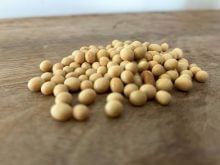Agrium’s Canadian manager explains why farmers have nothing to fear from the company’s marketplace dominance.
“We would be scared to death to get the reputation that we are not charging anything but a competitive price for fertilizer,” said Kevin Helash, Canada and Pacific Northwest manager for Agrium’s Crop Production Services.
“Because along with the fertilizer goes the seed and the chemical business and all of the sudden we’d be sitting there like the Maytag repair man.”
The company has come under fire by farm groups for its pending takeover of 232 of Viterra’s 258 crop input retail outlets and its 34 percent stake in Canadian Fertilizer’s Medicine Hat manufacturing plant.
Read Also

Federal budget shows remaining disconnect between agriculture, policymakers, panelists say
Canada’s agriculture sector is still disconnected from policymakers in some ways, say panelists at a CAPI webinar
The Saskatchewan Canola Development Commission has sent a letter to the provincial and federal agriculture ministers and the Competition Bureau asking that Agrium’s market power be kept to a “reasonable level.”
An Informa Economics review of the Glencore takeover of Viterra commissioned by the Saskatchewan government also raised red flags about Agrium’s involvement.
Informa wasn’t concerned about the transfer of the retail outlets because Agrium will end up with only 39 more stores than Viterra had when the 232 Viterra outlets are added to its existing 65 stores.
What it found worrisome was the combination of Agrium’s retail and manufacturing clout in the fertilizer business. According to Informa, Agrium would own 42 percent of Saskatchewan’s retail outlets and about half of the country’s ammonia and urea fertilizer production capacity if the deal with Glencore were approved.
Informa said there is no indication that Agrium would use its newfound market power to raise nitrogen fertilizer prices. The company’s retail and wholesale units operate independently, there are competing retailers in most regions of Saskatchewan and prices could be kept in check by imported product and minimal barriers to entry for new retailers.
But the potential still exists for Agrium to exert its market power.
Helash said their analysis has uncovered 1,000 crop input retailers in Western Canada, so Agrium’s share of the stores would be closer to 30 percent than the 42 percent number used by Informa.
“Roughly two-thirds of market by locations will still be served by our competition,” he said.
Helash noted that fertilizer is a global commodity that flows freely across borders so Agrium could face competition from that corner. Agrium accounts for only three percent of global nitrogen fertilizer production.
SaskCanola chair Brett Halstead said the competition from offshore product is mitigated by the transportation costs of hauling the fertilizer to Saskatchewan from Vancouver or New Orleans.
“If we were 100 miles from a sea port it would be a much more comforting balance for us,” he said.
The Competition Bureau review on the Agrium portion of the Glencore deal won’t take place until the sale of Viterra to Glencore is finalized, which is expected in July.















